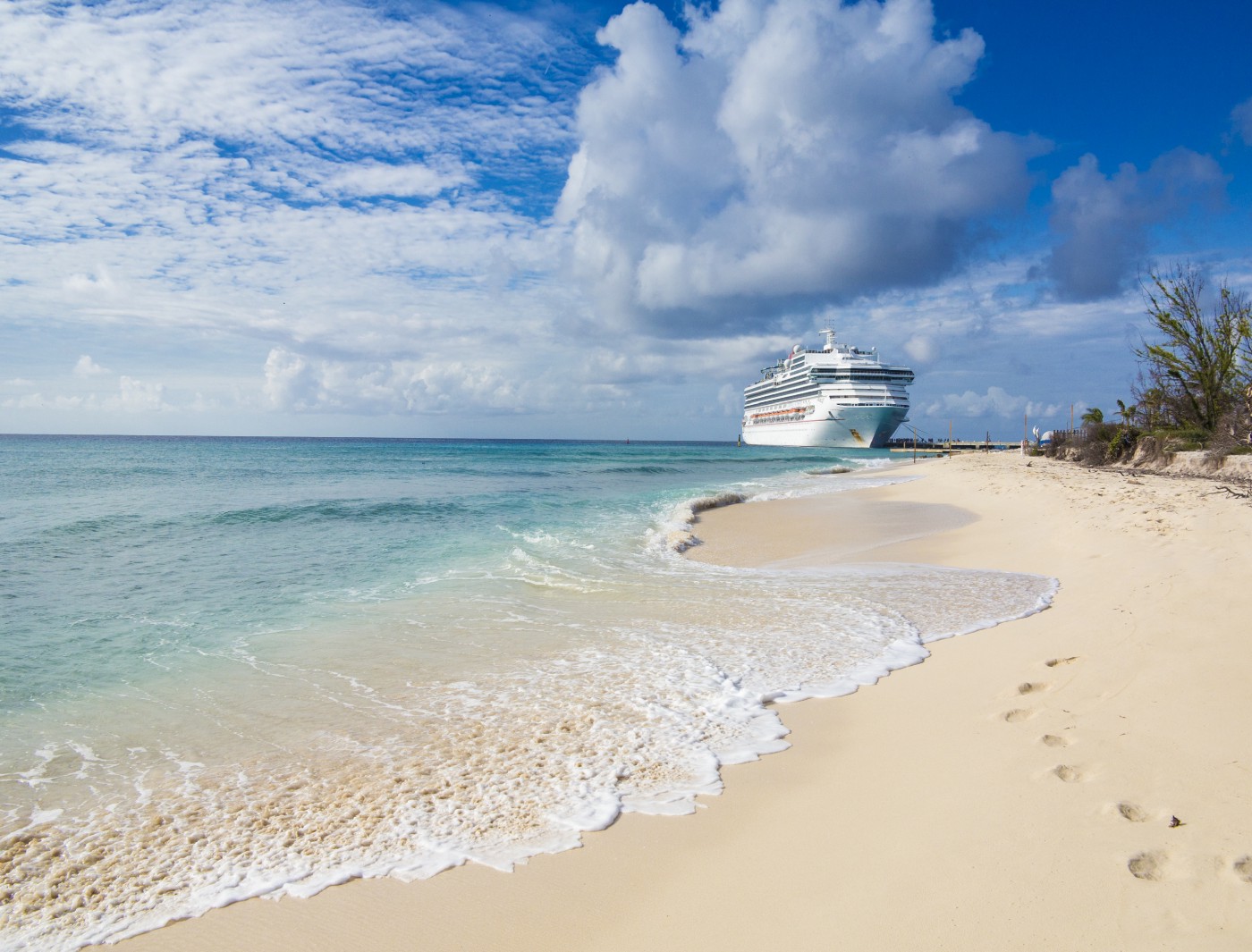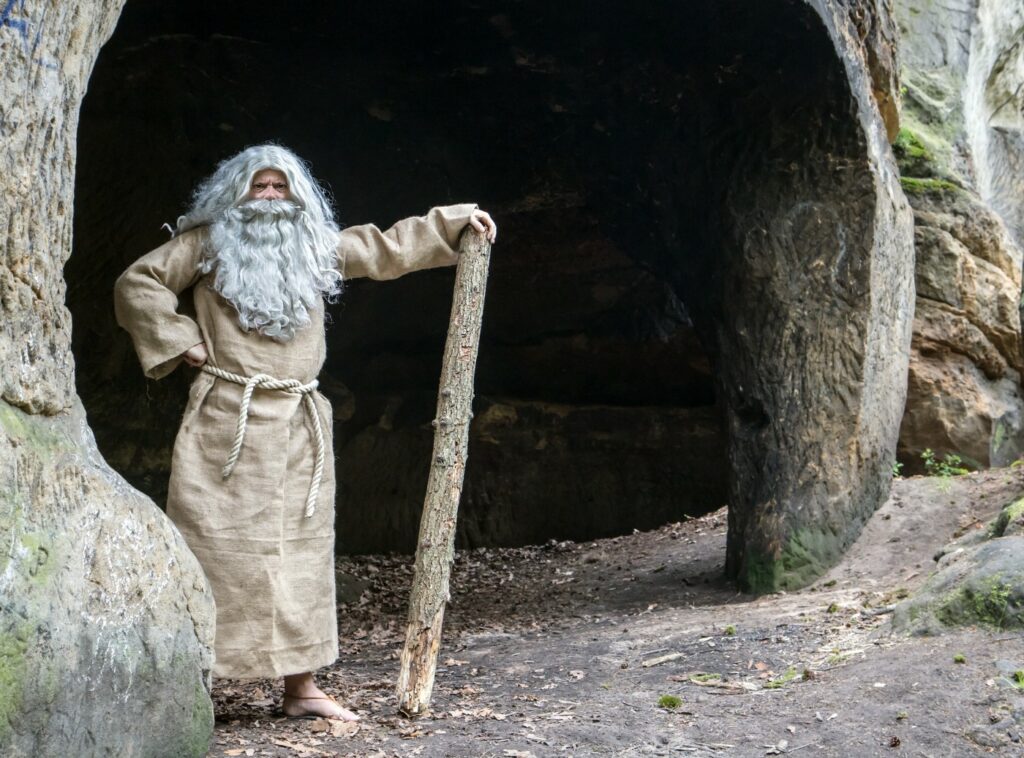By John Belizaire, CEO
When you’re talking about oceans, it certainly is. Striving for smarter environmental practices today means keeping one eye on land, and one eye on the high seas. Our world’s waterways — large and small — are unarguably essential to maintaining a sustainable way forward for all of the humans, plants, and animals that share our planet. If the Earth’s oceans and seas could speak, I’m sure they’d agree: the bluer the better.
In Part One of my series on eco companies that are inspiring Soluna, “Tesla is Getting Us Turbocharged,” I explained why Tesla, this 21st Century automaker is driving positive change with its less-hyped energy storage solutions unit. Extending my search for actors with good ideas, I landed on a surprising source of inspiration — not a newcomer, but a familiar name placing a helpful spin on an extremely polluting industry.
Cruise Control
As best it can, the new cruise line arm of Sir Richard Branson’s Virgin Group, Virgin Voyages, is looking to minimize the incredible mess that this $117 billion industry makes of the world’s oceans AND land — a situation that currently triples a passenger’s carbon footprint just by stepping on board. Between their sins against sewage treatment, air pollution, and water quality, the eco-destruction that cruise ships unleash would make any well-meaning vacationers head for the hills on their next week off.
You can visit Friends of the Earth’s sobering cruise ship report card to see how the current players measure up — a list Virgin Voyages doubtlessly plans to top. Set to make its maiden voyage in April 2020, the line couples its “adults-only” premise with an equally grownup focus on sustainability:
- unnecessary single-use plastics are banned;
- ultra-efficient energy-consumptive devices like LED lighting are emphasized;
- food waste is reduced (no buffets, sustainable seafood); and
- a clean-power-producing/wastewater-purifying power plant is employed.
Yes, Virgin Voyage’s efforts will only be a drop in the bucket of an Earth-devastating vertical. But it’s a notable start, not just for its cruise-line impact but also for the bigger picture of the options open to all kinds of companies — and their customers — for helming wholesale environmental change.
Adaptive Action
In my Tesla column, I noted three guiding principles for environmentally-focused companies that we admire. Those were:
- Sustainability
- Carbon Footprint
- Effect on Local Economies
One of the interesting variations of those principles is where they appear on the company’s timeline, as well as on the timeline of the technology sector they’re servicing. In Tesla’s case, those principles were baked into the foundation since their inception in 2003, applied to the 125+ year old automotive industry.
Soluna occupies another point on that matrix. We were founded in 2018, applying these guiding principles to a sector that’s just a decade old now: supporting Bitcoin and its energy-intensive Proof of Work (PoW) mining process with high-performance, off-the-grid data centers which are co-located with and powered by 100% renewable energy power plants.
With the arrival of Virgin Voyages we add a different dimension to the timeline: In this case, it’s the latest outgrowth of a multinational corporation, Virgin Group Ltd. which was founded in 1970, newly competing in one of the oldest industries known to mankind — the earliest evidence of sailing vessels dates back to between 5500–5000 BC! The advent of big-ship leisure cruising, however, is admittedly a more recent phenomenon, arising in the mid-1960’s to bring a fresh purpose to ocean liners. These big passenger ships were no longer necessary for trans-continental transportation (thanks to the onset of the jet age), but were correctly seen by the likes of early players such as Norwegian Cruise Line, Royal Caribbean International, and Carnival Cruise Lines as a lucrative venue for recreation and sight-seeing.
Here’s where I see key distinctions between the ability of companies built from the ground up to address environmental needs, as opposed to older companies that develop environmentally-minded divisions or product lines: Legacy companies seem to be responding to the global pressure and sentiment coming from their customers. They may also be responding to overall competitive pressures.
These companies have to deal with an innovator’s dilemma. In other words, they are forced to ask, “How do we contribute to climate change ethos without destroying our business?”
On the other hand, relative newcomers like Tesla and Virgin Voyages start with, “Why? Why create a company now to address climate change?” Having the luxury to do so without any baggage allows them to think freely, starting with principles around what is possible and the role they truly want to play. They have to do it profitably if they are a for-profit enterprise, but that’s where the fun begins.
What allows Virgin to try and enter that environmentally responsible realm with a play like Virgin Voyages is adaptability — a characteristic that’s extremely important but also introduces certain challenges. If you’ve got a business that’s very or even moderately successful, the last thing you want to do is imagine destroying that business and building a new one.
In responding to the shifting winds of the market and their customers’ call to see environmental progress, Virgin is handling this balancing act very well. Fundamentally, I believe that Virgin truly does care about these issues themselves, which has led not only to the core sustainable/carbon neutral Virgin Voyages policies I noted above, but also to a role in rewarding developers of cleaner energy tech. Four ships have already been ordered, each of which utilizes the efficient Azipod propulsion system which helps to reduce fuel consumption by 15% — not insignificant when you consider the average cruise ship needs 250 tons of fuel per day (80,000 gallons) to get around.
Customer Care
What intrigues me most about these welcome developments is who’s really behind them — the customer. Consumers will self-select this cruise line because of the fact that it’s environmentally conscious, which sends a signal to the rest of the industry.
This power of suggestion and competition is actually quite powerful. Travelers will start to choose Virgin Voyages because they like the environmentally forward principles behind it, leading even more people to gravitate to an option where they can make an indirect contribution to combating climate change. That, in turn, will push the rest of the industry as they feel competitive pressure to do the same.
Sustainability is a cross-industry, global goal that we should all be pushing towards (and in the upcoming third and final installment of this series, I’ll show how blockchain innovators can put us on a fast track). When you see forward-looking legacy companies consciously decide to build eco-friendly alternatives from scratch, they not only make a contribution themselves, but empower consumers to help build on forward momentum. Suddenly, transformational change is happening.




